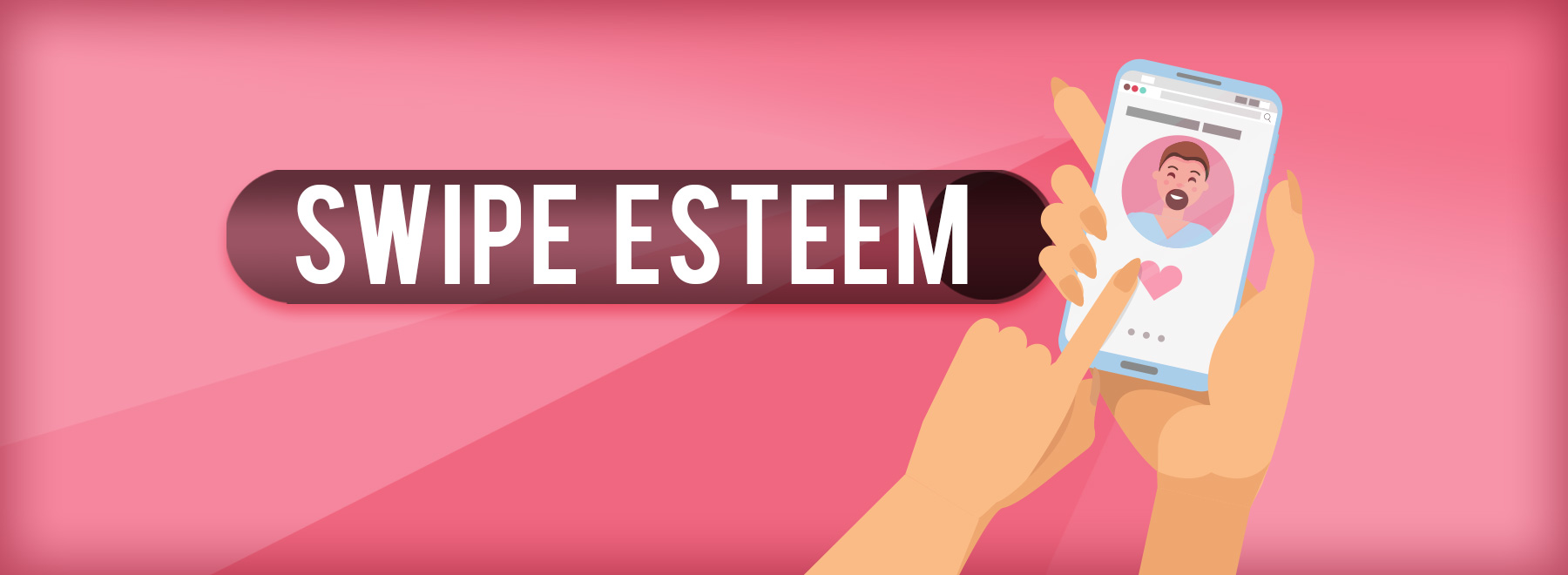Dating apps may not be for thin-skinned, faint-hearted
Pretend it’s the year 1900 and, somehow, online dating exists.
Consider the following profile:
“High school dropout trying to get a job with the patent office. I value: Sleeping 10 hours a day. Favorite hobby: postulating. Least favorite things: haircuts and socks. You should message me if: You like molecules and men with abnormally large heads.”
If several people had read that profile 119 years ago and, in dating app jargon, “swiped left,” they would have been turning thumbs-down to a German-born 20-something (who, for some reason, wrote his profile in English): Albert Einstein.
That’s worth thinking about, especially when some research suggests the pitfalls of dating apps, including frequent rejections, may not do wonders for a user’s mental health.

“If your friends, whom you consider more attractive than you, are having more success on an app like Tinder, it could impact your self-esteem,” said Dr. Julie Schumacher, professor of psychiatry and human behavior at the University of Mississippi Medical Center. “And while younger people who are frequent users of these apps may be more used to rejections and ghosting, people who may not have dated in a while could find this more upsetting.”
The reality is that more and more people are using online sites and apps as their personal Cupids (there’s even an app called OkCupid). This year, a Stanford University study found that “heterosexual couples are more likely to meet a romantic partner online than through personal contacts and connections.”
The fact is, though, that research methodology is not designed to answer “definitively” whether taking this rejection-riddled route will result in lowered self-esteem, Schumacher said.
“Maybe people who already have lower self-esteem are more likely to use Tinder,” she said.
What she did say definitively: “People need to go into [online dating] with eyes wide open. For instance, if your goal is to eventually get married, know that people on Tinder, for instance, are less likely to share that goal. Tinder is generally known as focusing on casual, short-term relationships.
“With all online dating sites and apps, realize that the norms are different. Shift your perspective. Rather than thinking of it as a rejection, think of it as just the culture you are entering. There probably will be people you don’t swipe right for as well.”
Still, it’s a rejection, she said. “And rejection is painful.”
With it may come the thought that “‘there must be something wrong with me,’” said Dr. Daniel Williams, associate professor of psychiatry and human behavior and director of the Division of Psychology at UMMC. However, as Schumacher and Williams pointed out, meeting someone through the ether has some pluses: Suffering a left-swiping is not quite like being shot down at, say, a singles bar.
“It’s more anonymous,” Schumacher said. “A lot of factors make it less embarrassing. Those who are very sensitive to rejection may actually feel safer in an online or app-based dating environment than in face-to-face social situations.”
Online, Williams said, “there is less pressure than there is at a party or some other social event.” It may be less stressful for someone who is shy.
“You also get to interact with more people than you would meeting them the traditional ways, especially if you live in a rural area,” he said. “It’s more convenient and time-efficient. Some sites are tailored for people with mutual interests.”
Yet, for people who aren’t inured to the peculiarities and perceived cruelties of the social media world, there are pitfalls and red flags to learn.
“There’s evidence that getting rejected in an online setting increases the hostility of some men,” Williams said. “Instead of developing social skills, they are becoming angry and often blame the women. That is going on in our society, and it’s unhealthy.”
There is the risk of being deceived, which has been a strategy of dodgy daters from the beginning of time: “Showing up for a date in someone else’s expensive car,” Schumacher said. “Sucking in your gut.”
Online fraud, though, may be even more treacherous. “Catfishers,” for instance, may help themselves to another person’s photo, name and even personality. Typically, it’s “smaller in magnitude” than that, Schumacher said, such as “lightly exaggerating height or career accomplishments.”
Greed-fueled deception is also a danger.
“People are trying to prey on others financially,” Williams said. An obvious red flag: Someone asking for money.
“There is some research coming out showing that a growing group of people using online dating are in their 50s and 60s,” Williams said. “This is also a group, particularly widows, that is a target for financial scams.”
While apps and online sites may provide a variety of choices, more information is not always a good thing, Williams said. It can lead people to be “judgmental or picky. You may always be looking for someone better. You can just keep swiping left, almost forever.”
Because there may be many “attractive alternatives,” Schumacher said, users may be less likely to make a relationship commitment. And when they do, they may not be that gracious about it, or about anything else, as anyone who has ever been sucked into an online political debate knows.
“It’s easier to be rude online,” Williams said.
In short, dating apps and online dating sites are popular but may not be for everyone. People who believe they must dive in anyway should realize that some rejections await them, but those dismissals are not, by any means, the last word.
“Most of these [online dating] decisions are made with little information,” Williams said. “So we shouldn’t take it personally. It doesn’t really reflect on our value as people, on what we have to offer to the world.”
As a comparison, Schumacher cited the schoolyard tradition of picking sides for a football game.
“With online dating, everyone is the last one picked, at least some of the time.”
Even, perhaps, future Nobel Prize-winning geniuses.
Online dating glossary
• Bumble, eHarmony, Hinge, Tinder, Zoosk: some of the more popular dating sites or apps
• Catfishing: creating a false identity online to appear more alluring
• Ghosting, simmering, icing: ignoring, or ceasing to respond to, someone’s profile or messages; disappearing
• Swiping right: an indication that the person viewing someone’s profile is interested and wants to know more
• Swiping left: a rejection
The above article appears in CONSULT, UMMC’s monthly e-newsletter sharing news about cutting-edge clinical and health science education advances and innovative biomedical research at the Medical Center and giving you tips and suggestions on how you and the people you love can live a healthier life. Click here and enter your email address to receive CONSULT free of charge. You may cancel at any time.



